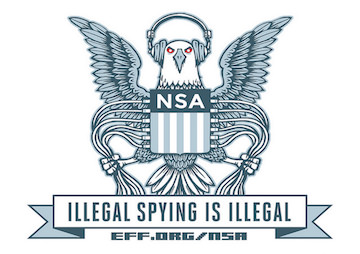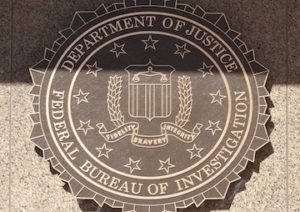USA Freedom Act: Where Do We Go From Here?
There is a long way to go despite the passage of the USA Freedom Act, explains digital rights watchdog Electronic Frontier Foundation (EFF) Flickr/EFF
Flickr/EFF
Flickr/EFF
The passage of the USA Freedom Act marks the first time in over three decades that a bill restricting the National Security Agency’s surveillance powers has been approved by both houses of Congress.
But, as Internet watchdog Electronic Frontier Foundation (EFF) makes clear, there is still a long way to go. “The USA Freedom Act shows that the digital rights community has leveled up.” Despite this small victory, they state, “we’re going to need those skills as we turn to our larger mission: ending overbroad surveillance of our digital lives.”
They continue:
EFF has been in legal battles to stop the NSA’s mass Internet surveillance since January 2006. While the USA Freedom Act may have neutered the phone records surveillance program and provided much needed transparency to the secretive FISA Court overseeing the spying, it didn’t solve the broader digital surveillance problem. That’s still firmly on our agenda.
Certain provisions of the Foreign Intelligence Surveillance Amendments Act are scheduled to sunset in 2017, including Section 702, one of the main legal authorities the government relies on to engage in mass surveillance of people’s online communications. We’re going to campaign for the reform—or expiration—of Section 702 in the next year and a half, using the resources, communities, networks, and many of the strategies we developed in the battle around the USA Freedom Act.
We’ve also been speaking out publicly against Executive Order 12333, an executive order that the NSA relies on for most of its digital surveillance of people worldwide. We’ll be launching a big campaign to attack this Executive Order, putting pressure on President Obama. Our goal is to get the president to address the biggest problems with EO 12333 with a new executive order before he leaves office.
Above all, we’re taking aim at the problem of overclassification. The government has used secrecy and the claim of national security interests to ward off public oversight. No reform can be effective unless we bring more sunlight into how the government is interpreting the law and the surveillance programs it is turning against law-abiding citizens. This necessitates an overhauling of the classification system, reforms to the security clearance process, strong protections for whistleblowers, even more transparency to the FISA Court, and addressing the abuses of the state secrets privilege.
The USA Freedom Act will likely affect EFF’s ongoing litigation against the NSA, including Smith v. Obama, First Unitarian Church of Los Angeles v. NSA, and Jewel v. NSA cases, all of which include claims against phone records surveillance. It will also affect several cases in which we serve as amicus (including Klayman v Obama and ACLU v. Clapper). How we proceed in each of these cases will play out in the coming weeks and months. But whatever happens, we will continue fighting in the courts to ensure that the government does not exceed its statutory authority to spy or violate our constitutional rights.
We fought hard to get to this moment in history. Our long-term goals are ambitious—the end of overbroad surveillance of all digital communications, a recognition of the privacy rights of people outside the United States, and strong accountability and oversight for surveillance practices. Today’s Senate vote did not accomplish these things, but it did move us a bit closer. It also demonstrated the political will and organization of the digital rights community, which we know will continue to fight for stronger reforms. It will also hopefully embolden Congress to feel that they can bring a sensible balance to surveillance policy and practice. We extend our thanks to all of our supporters across the globe who fought so hard to bring us to this historic moment, and we look forward to working alongside you as we continue to curb abuses by the surveillance state in the years to come.
Read the article here.
–Posted by Roisin Davis
Your support matters…Independent journalism is under threat and overshadowed by heavily funded mainstream media.
You can help level the playing field. Become a member.
Your tax-deductible contribution keeps us digging beneath the headlines to give you thought-provoking, investigative reporting and analysis that unearths what's really happening- without compromise.
Give today to support our courageous, independent journalists.








You need to be a supporter to comment.
There are currently no responses to this article.
Be the first to respond.